'We’ve always had innovation in our blood.' DeIorio's Foods celebrates 100th anniversary
It all started with a hand-built coal-fired oven on Lansing Street in East Utica. One hundred years later, like yeasted dough left to prove, DeIorio’s Foods has grown and grown.
In 1924, Giovanni “John” DeIorio and Pasquale “Pat” DeIorio started a bakery in their backyards. The immigrants from the Abruzzi region of Italy began by baking just one product, fresh, authentic Italian bread, and delivering it to their neighbors.
The brothers were married to a pair of sisters, Frances and Elizabeth, whose parents immigrated from Calabria, and the quartet worked together seamlessly to operate the business.
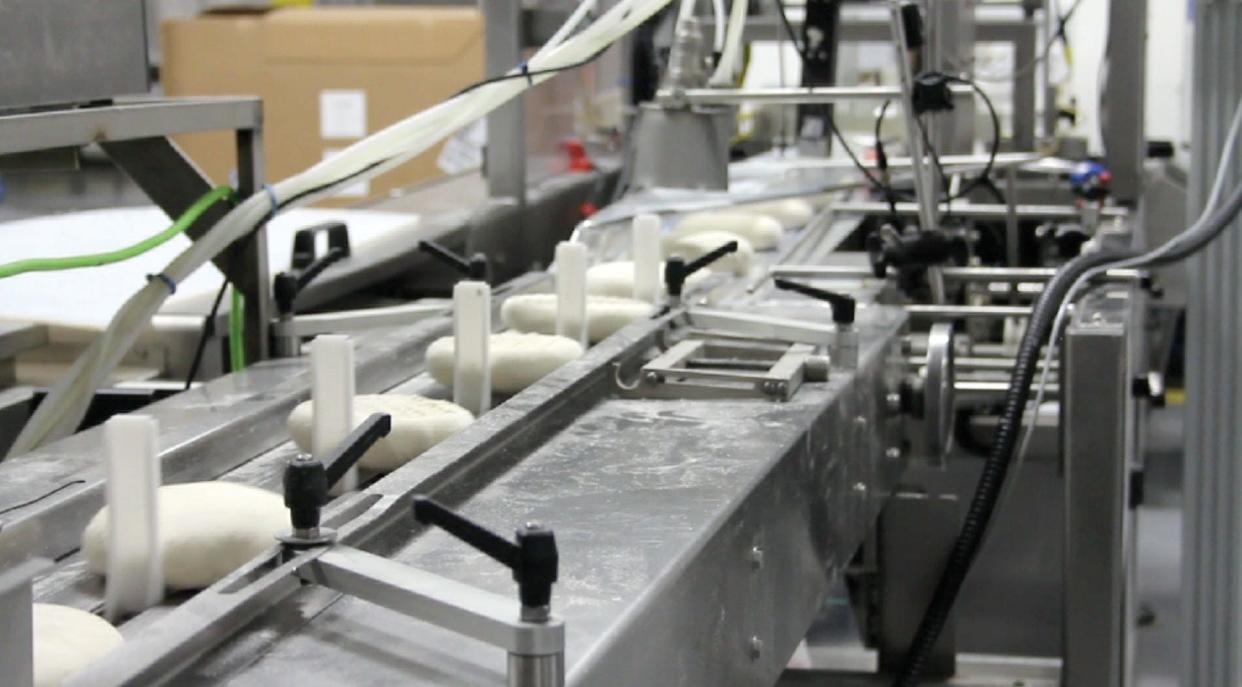
John’s son Ben DeIorio, who ran the business from 1968 to 2007, said his father was the master baker, his Uncle Pat had a knack for fixing the equipment, his aunt Elizabeth took care of the books and his mother cared for the children – Ben, his brother John Jr., and their five cousins.
“They got along that way,” Ben said. “It was a great combination.”
Ben is now 84 and lives in Vero Beach, Florida, operating a small bakery out of his garage.
Rising in the industry
Bob Horth, vice president of business development, has been with the company for 45 years. He attributed the long-term success of the business to the DeIorios' flexibility and foresight.
“We’ve always had innovation in our blood, never satisfied with the status quo,” Horth said. “‘Let’s just keep making what we’re making, and if people don't like it, we'll move on’ – that is not how we went about business, how we operated. We would always be looking ahead at what the next trends coming are going to be, the next year, the next five years, for example. And we've adapted and made products to meet those trend’s needs.”
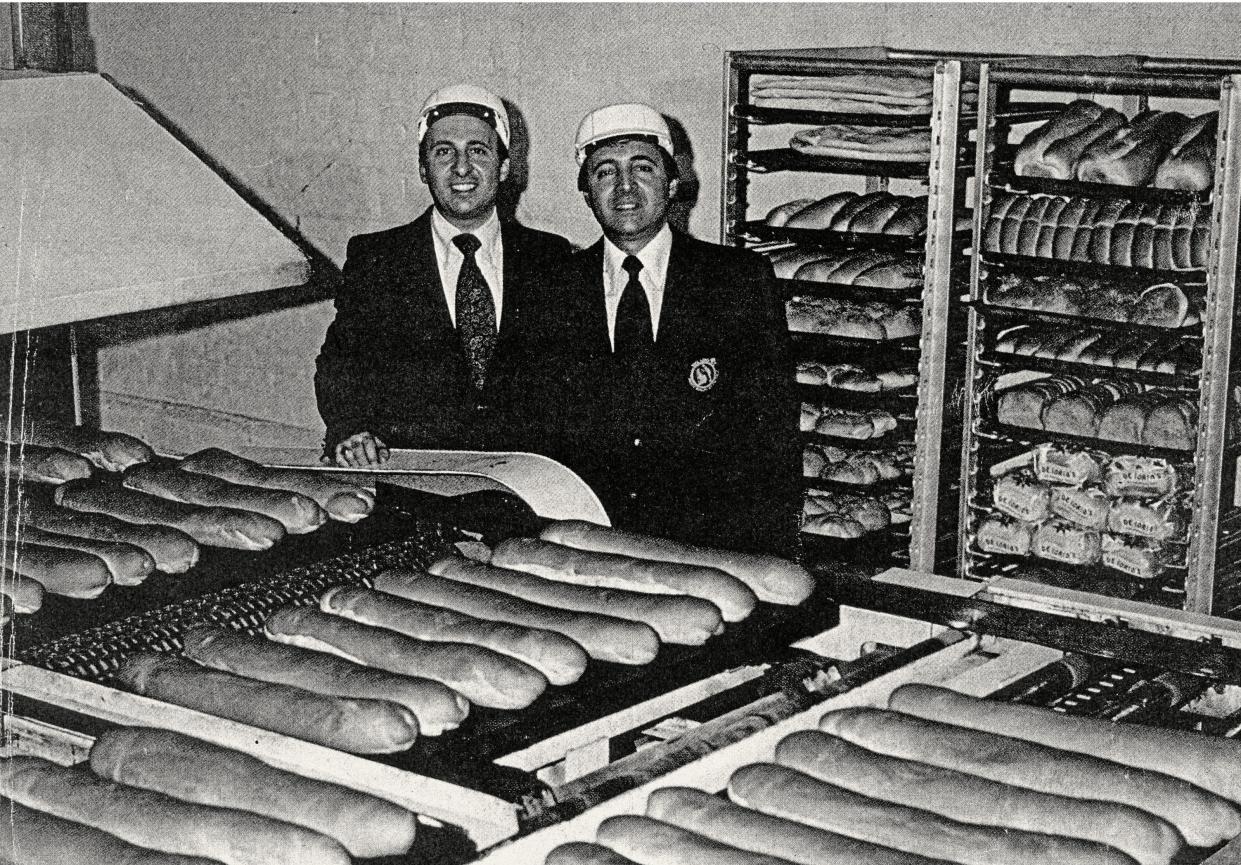
The DeIorios originally delivered their fresh-baked Italian bread in wicker baskets to homes and small grocery stores in East Utica. Ben remembers riding around in a truck as a child with his cousin Vinny to make those deliveries. Once they realized that the truck fumes could impact the loaves, they became the first company to bag Italian bread.
Another invention, colloquially known as the best thing: sliced Italian bread. The DeIorios were the first to do it.
Pat DeIorio wondered why they couldn’t slice their product like Wonder Bread, and he and John Sr. visited Hartmann Slicing Company in New Rochelle, where the owner said his slicers wouldn’t work for Italian bread because of its rounded edges. Pat had an idea: He could adapt the tool and insisted on buying a slicer anyway.
“Uncle Pat was kind of a MacGyver, and he said, ‘We are buying this, and we’re going to slice Italian bread,’” Ben said. “And Mr. Hartmann said, ‘Okay, I will sell it to you on one condition: You cannot bring it back.’ And Uncle Pat said, ‘Don't worry, we're not going to bring it back.’”
Uncle Pat was a man of his word. When Hartmann didn’t hear from the DeIorios, he called them to ask how it was going, and Pat showed him how he had developed a mechanism to knock the ends off the Italian loaves and produce perfect slices. Ben said Hartmann was so impressed that he purchased the design and started selling it to other Italian bakeries.
As the DeIorios found success with their breads and loaves, they needed room to grow. In 1948, they moved from the backyards of Lansing Street to a 10,000 square foot facility on Elizabeth Street, where they obtained new equipment, like two upright mixers that could each mix 800 pounds of dough and a walk-in proofing box.
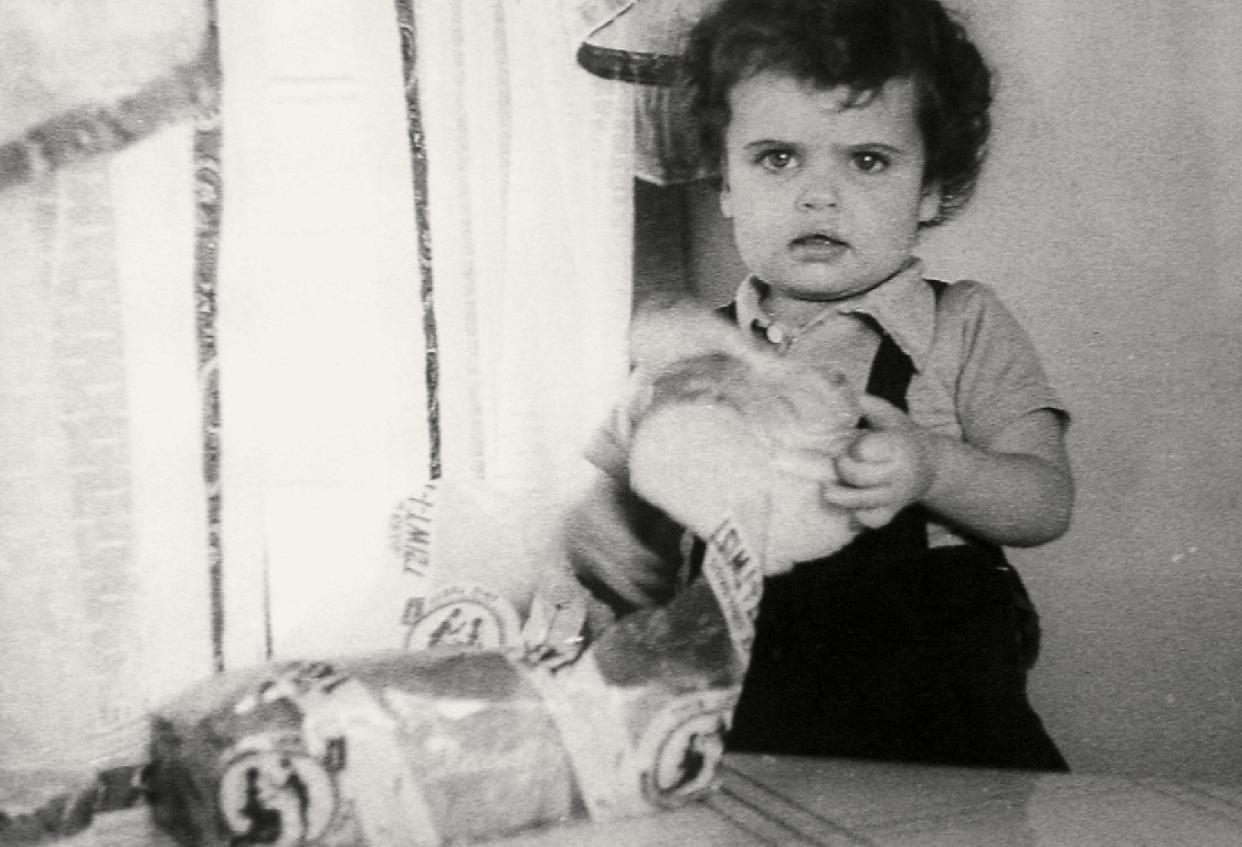
They were able to dismantle and rebuild one of their ovens from Lansing Street, an oven which Ben said was another innovation. It had traveling shelves which employees would load with raw dough at the door. The shelf would then travel to the back of the oven, where the dough would bake into bread in 30 minutes.
“When they put that oven in, they invited all the restaurants, all the grocers, everybody, they had like an open house to show this new oven,” Ben said. “That was another first, and people were just amazed, because they would see the dough go up the shelf and disappear, and 30 minutes later it would come out as a baked bread and they’d load that shelf again. So it was kind of an eye-opener for a lot of people. And I think it was those things that they did that made them famous, and they did have a good loaf of bread.”
Coffee talk: This popular Utica coffee shop closed in March. What's next for the former Café Domenico?
'A fading gem': The tragic decline of Erie Canal Village, and how it could be repurposed
The original DeIorio brothers sold the bakery to a friend of theirs named Harold Tracy, with whom they had collaborated on some products, in 1955. Ben and his brother John helped out at the bakery, but starting in high school, they formed a doo-wop quartet called the Daytones, and in 1958, Ben began pursuing a philosophy degree at Utica College.
Ben said that the Daytones dueted with Tony Bennett, performed at the opening of the Utica Memorial Auditorium and almost secured a record deal with Columbia Records. Throughout the 1960s, John Jr. and Ben went back and forth between club dates in New York City and helping out at the bakery under Tracy’s leadership.
When the record deal fell through and they heard that Tracy wanted to sell the bakery in 1968, the brothers went to see him about returning it to the DeIorio name.
“It was a hard decision to disband [the Daytones],” Ben said. “But after the Columbia contract failed, John was getting older, his kids were getting older and going to school, all that stuff, so we decided we better just go back to the bakery and make the best of it. And we did.”
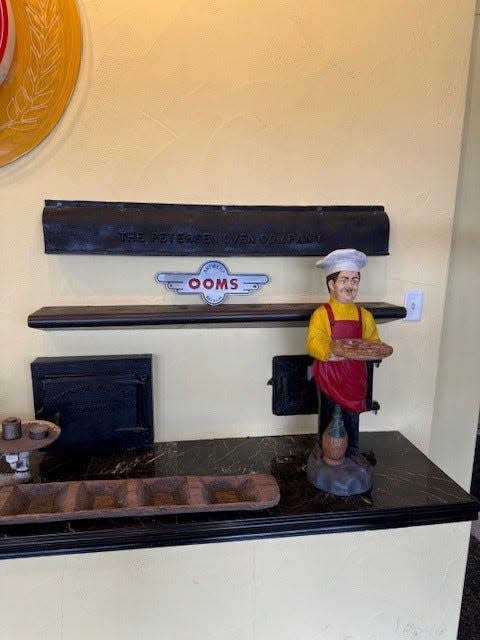
Change in the air
In 1976, Ben DeIorio walked into a P & C grocery store in Syracuse and inhaled the unmistakable aroma of bread baking.
“They took me right back to the deli department – that's where they put their ovens,” Ben said. “And I said, ‘Look at this.’ They’re making Italian bread, rye bread, hard rolls. We had commanded the markets then, because we were baking bread – the German bakers, the Italian, the Polish bakers – we were making breads that the American bread bakers couldn't make. So we really commanded our own space in the market, because our breads were popular. But we would start at about four o’ clock in the afternoon to have all our bread ready for our trucks to leave at five o'clock in the morning. But with the in-store bakeries, they were baking bread on the day they were selling it.”
Sensing a sea change, Ben and John started transitioning to frozen dough. They would mix and form the dough, put it in a blast freezer and then sell it to grocers for them to bake in-store.
“We didn’t go to the supermarkets to sell it,” Ben said. “We went to the independent grocers that needed to compete with the supermarkets, like we had to compete with the supermarkets in some way, so the way was to get into frozen dough.”
Jim Viti, another longtime employee who started in production in 1989 and now serves as vice president of marketing and product development, credited Ben with the good business sense to pivot to frozen products.
“We followed the evolving markets,” Viti said. “It was partly out of necessity to continue to evolve. It was a direction that Ben DeIorio had the foresight to go into.”
Ben said that the transition from fresh to frozen was the hardest business decision he had to make, and he didn’t want to make it without his Uncle Pat’s blessing.
“Uncle Pat said, ‘Look, what are you worried about? You’ve got to do what you’ve got to do,’” Ben said. “I said, ‘But you realize you’re not going to see the DeIorio’s name on the shelves anymore. It’s going to be our bread that’s being made, but they’re going to think it’s been made by the store people.’ He said, ‘What do you care about that? If that’s what you need to do, you’ve got to do it.”'
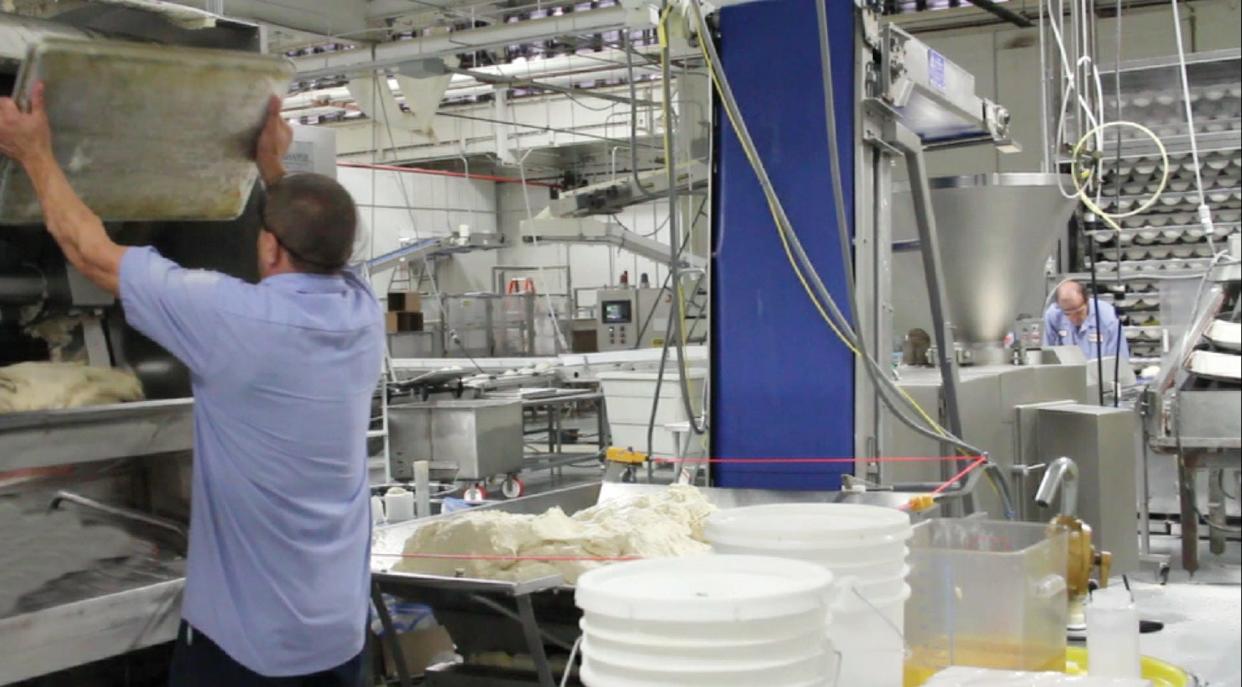
Life of a salesman
In the 1980s, Ben and Horth were traveling salesmen, driving all over the northeast and pitching their product to stores, as well as training grocers on how to produce their bread. Horth holds fond memories of those trips.
“I remember a lot of those conversations, those crazy trips, driving at midnight on back roads to try to gain customer business,” Horth said. “That is very vivid in my mind, the time spent with him.”
Ben made a point of maintaining close relationships with his clients. Rather than using third-party brokers, DeIorio’s had salespeople located in different markets, from Utica to Pennsylvania to Maine, with the technical knowledge to train clients and resolve any issues on the spot.
These salespeople would often spend two to three weeks in supermarket bakeries setting them up for success.
“The customers knew that if they had a problem, within 24 hours, it was solved,” Ben said. “We took the burden of a problem in the bakery away from the owner of the store. We took care of it.”
Ben spotted another opportunity in the late 1980s. Convenience stores were starting to sell more hot food like pizza, and did not have the capacity to make their own dough onsite. They needed frozen dough, and DeIorio’s had it.
From there, the frozen pizza dough sales exploded, with DeIorio’s expanding their reach into other areas that needed the dough like entertainment venues and even national pizza chains.
Ben said that they would approach pizza chains that were making their dough in dozens of different locations and explain that DeIorio’s could take the restaurants’ recipes, make it in one place and ensure consistency. Horth said that DeIorio's now ships to all 50 states and beyond, including Puerto Rico and Central America.
“The frozen business, it started small and kept growing, and then after we got into pizza, there was just no limit to it,” Ben said.

The creativity continues
These days, frozen pizza dough is DeIorio’s bread and butter. The business occupies about 200,000 square feet of a building in an office park on Bleecker Street.
When Ben sold the business in 2007, the production floor was running 8-10 hours a day, five days a week, with the ability to produce 16,000 pounds of dough per hour. Now, it runs at maximum capacity: 22 hours a day, six days a week, with 240 production employees.
In another instance of seizing on a new market opportunity, DeIorio’s began selling gluten-free pizza shells in 2007, including shells made of nontraditional ingredients like cauliflower. They have a dedicated, hermetically sealed room in the facility where they make gluten-free and kosher products.
Ben isn’t finished with innovation. He hopes to add an epilogue to his career by opening a bakery-cafe in the vein of Panera Bread, but with a focus on Italian bread and pastries.
Ben plans to name the cafe Pane di Terra di Abruzzi, which means “bread of the earth of Abruzzi'' in Italian, in honor of the region from which his father and uncle hailed.
“I have some qualified CEOs in my family, and hopefully this will be my swan song to the baking industry and the frozen dough industry – to produce this, and have them carry it forward,” Ben said.
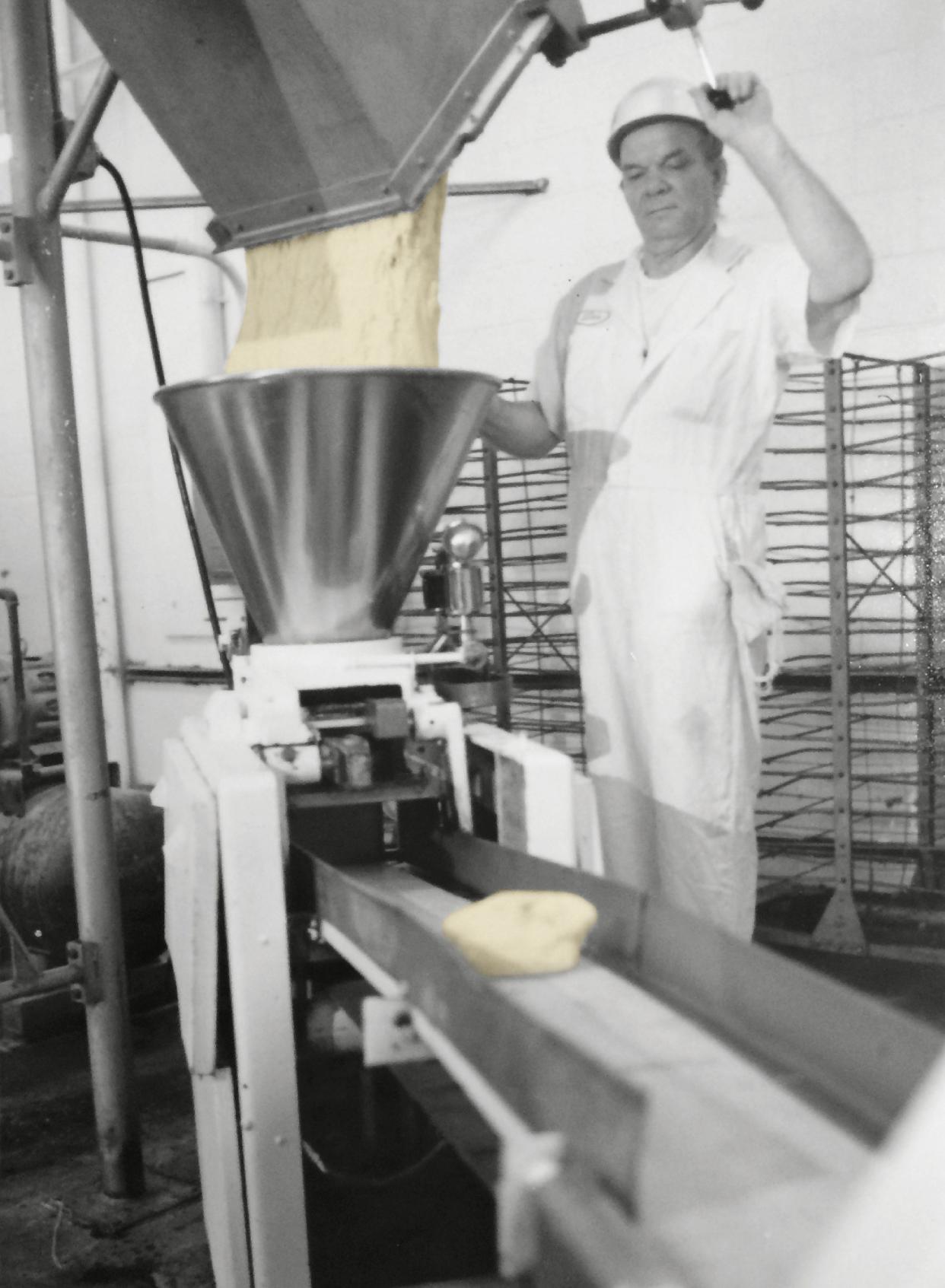
Heritage and family
The Bleecker Street building features a “Heritage Hallway,” adorned with photos of the founders and graphics and information detailing the growth and development the company has experienced over the past century.
“We evolved, it seemed like, every decade,” Viti said during a tour of Heritage Hallway.
Longtime employees like Viti and Horth feel a sense of pride in the 100th anniversary of the company. They spoke of the tight-knit camaraderie of DeIorio’s employees.
“I was supposed to be part-time in college for a couple of months,” Viti said. “So I came here in November of ‘89, for the ‘help till Christmas club,’ if you will. And then time evolved – eventually, I met my future wife here, and we got married and had two children. So this became part of my life. And I can say that for some other people working here too.”
“You know, you have your family and you have your work family,” Viti continued. “So this is just a work family. We depend on each other. We work for each other. And we wanted to get to a milestone. We wanted to get to this 100 years, and we've come to fruition, so I think it's just a matter of pride. And even though it’s not my last name on the building, it feels like we're all part of the family.”
Downtown Utica revitalization: Here's how a $800K state grant will transform Munson
Hot topic: Rome's proposed public amphitheater: A vision for cultural exchange
Horth expressed his gratitude for all the folks who have made the company a success.
“There’s been so many people behind the scenes in the company that have allowed us to get here,” Horth said. “I think back of the customers that we've had and have that continued their loyalty and buying our products and getting us where we are today. So I look at it in two phases: we’ve had a tremendous run of dedicated employee service, and then the loyalty of our customer base.”
Ben said that he has always tried to maintain a familial environment at the business. When he was the boss, he had an open-door policy, and if any of his employees ever had a problem at home, he would insist that they go take care of things, no questions asked.
“I used to do the rounds every morning at five o'clock in the morning, go to every station, and talk to them – keep that camaraderie of owner and employee like on the same level,” Ben said. “And they really appreciated that.”
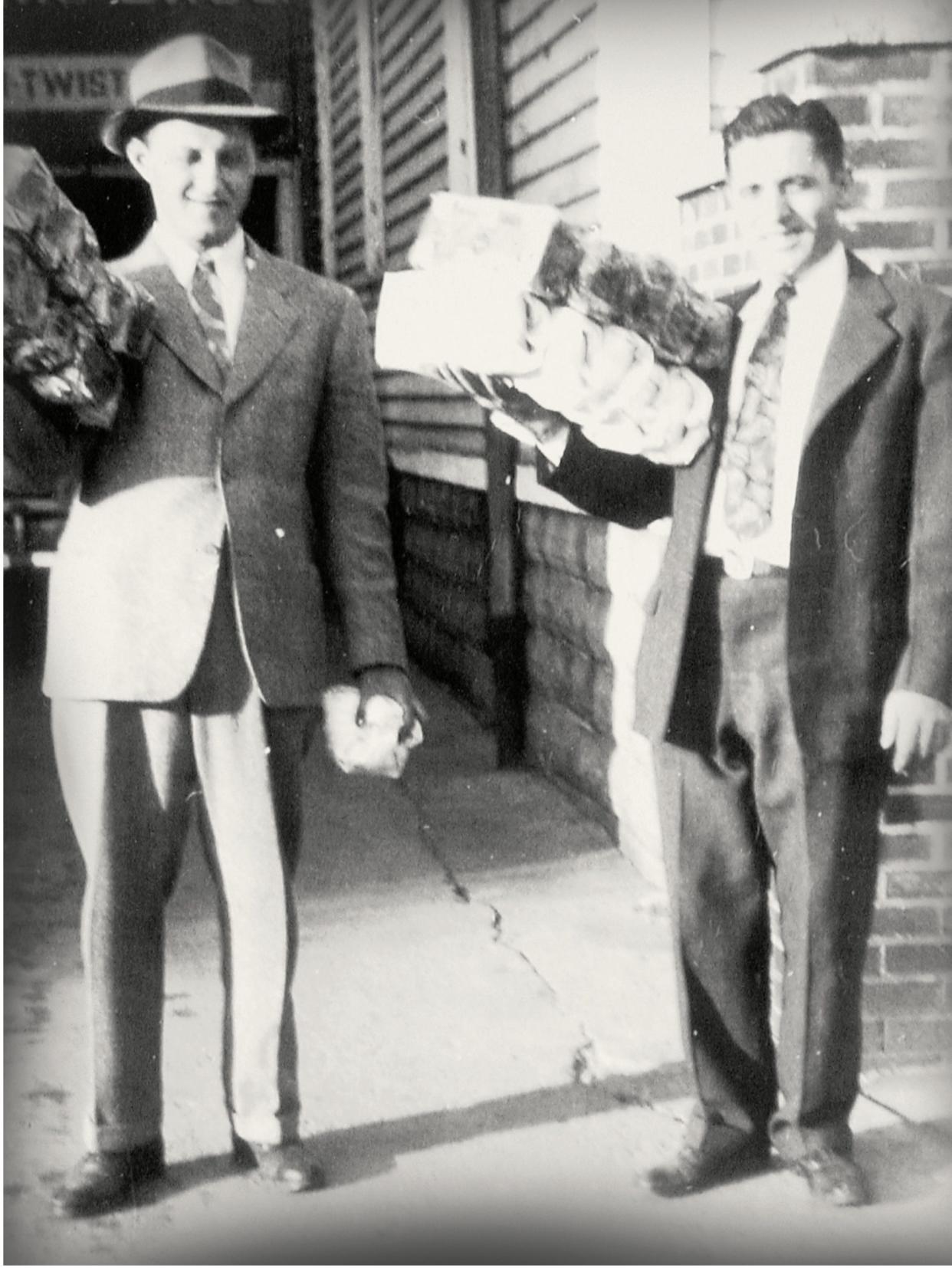
The story goes on
A company founded by immigrants in a city with a rich history of welcoming those from overseas, DeIorio’s continues to employ many immigrants today. Viti expressed pride that the company is able to offer secure, good-paying jobs with benefits to these folks.
He recently did a survey and found that employees speak 15 different languages from around the world – Bosnian, Chizigula (a Bantu dialect spoken in Tanzania and Somalia) and Burmese, to name just a few.
“Utica is known as sort of an immigration city for people to get started,” Viti said. “That’s how DeIorio’s got our start, with Italian immigrants, and here we are 100 years later with new people getting their starts.”
Ben also expressed his appreciation for the immigrant populations that have helped DeIorio’s thrive.
“Without them, I don't think we could have run the plant, to tell you the truth,” Ben said. “When I hear people complaining about immigrants – this country was built by immigrants. My father and uncle built this bakery, and they came from Italy. And the story goes on and on and on.”
This article originally appeared on Observer-Dispatch: Delorio's Foods celebrates its 100th anniversary in Utica
